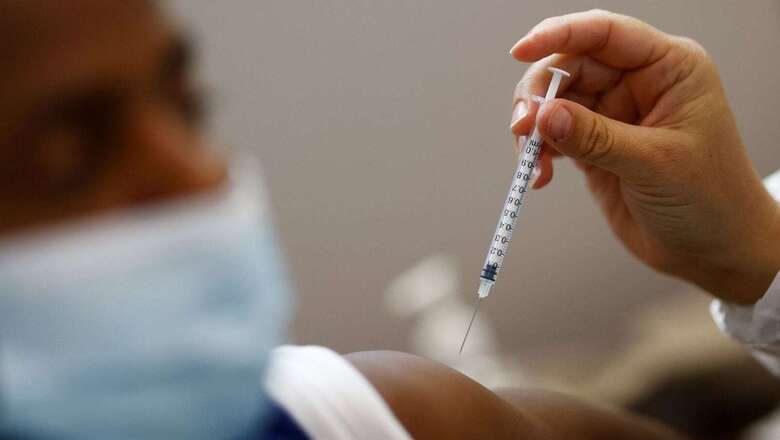
views
In a significant development, Pfizer Inc. on Friday announced that its experimental antiviral pill for COVID-19 cut rates of hospitalisation and death by nearly 90%. It released preliminary results of its study of 775 adults.
Pfizer’s drug, part of a class known as protease inhibitors, is designed to block an enzyme the coronavirus needs in order to multiply. “We were hoping that we had something extraordinary, but it’s rare that you see great drugs come through with almost 90% efficacy and 100% protection for death, said Dr. Mikael Dolsten, Pfizer’s chief scientific officer, in an interview with the Associated Press.
ALSO READ | Pfizer Says Its Experimental Covid Pill Cuts Hospitalisation, Death Risk by Nearly 90%
The drug-manufacturing company said that it will ask the FDA and international regulators to authorize its pill as soon as possible. However, independent experts recommended halting the company’s study based on the strength of its results.
Here’s all you need to know about Pfizer’s ‘Experimental Antiviral Pill’
– Study participants were unvaccinated, with mild-to-moderate COVID-19, and were considered high risk for hospitalisation due to health problems like obesity, diabetes or heart disease. Treatment began within three to five days of initial symptoms, and lasted for five days.
– Patients taking the company’s drug along with another antiviral had an 89% reduction in their combined rate of hospitalisation or death after a month, compared to patients taking a dummy pill.
– Fewer than 1% of patients taking the drug needed to be hospitalized and no one died. In the comparison group, 7% were hospitalized and there were seven deaths.
– A trial of Pfizer Inc’s experimental antiviral pill for COVID-19 was stopped early after the drug was shown to cut by 89% the chances of hospitalization or death for adults at risk of developing severe disease, the company said on Friday.
– The results appear to surpass those seen with Merck & Co Inc’s pill molnupiravir, which was shown last month to halve the likelihood of dying or being hospitalized for COVID-19 patients also at high risk of serious illness.
– Full trial data is not yet available from either company.
– Pfizer said it plans to submit interim trial results for its pill, which is given in combination with an older antiviral called ritonavir, to the U.S. Food and Drug Administration as part of the emergency use application it opened in October.
– The combination treatment, which will have the brand name Paxlovid, consists of three pills given twice daily.
– The planned analysis of 1,219 patients in Pfizer’s study looked at hospitalizations or deaths among people diagnosed with mild to moderate COVID-19 with at least one risk factor for developing severe disease, such as obesity or older age.
– It found that 0.8% of those given Pfizer’s drug within three days of symptom onset were hospitalized and none had died by 28 days after treatment. That compared with a hospitalization rate of 7% for placebo patients. There were also seven deaths in the placebo group.
– Rates were similar for patients treated within five days of symptoms – 1% of the treatment group was hospitalized, compared with 6.7% for the placebo group, which included 10 deaths.
– Antivirals need to be given as early as possible, before an infection takes hold, in order to be most effective. Merck tested its drug within five days of symptom onset.
– “We saw that we did have high efficacy, even if it was five days after a patient has been treated … people might wait a couple of days before getting a test or something, and this means that we have time to treat people and really provide a benefit from a public health perspective,” Annaliesa Anderson, head of the Pfizer program, told Reuters.
– The company did not detail side effects of the treatment, but said adverse events happened in about 20% of both treatment and placebo patients.
Meanwhile, top US health officials continue to stress that vaccination will remain the best way to protect against infection. But with tens of millions of adults still unvaccinated and many more globally effective, easy-to-use treatments will be critical to curbing future waves of infections.
Read all the Latest India News here




















Comments
0 comment